Some interesting and amazing facts about Bollywood music oldies you may not heard before
‘Bollywood music oldies’ – an integral part of my life and I love to breathe every moment of it. Music oldies – the golden era of Hindi music which starts with late 1940s and extends up to mid/late 1970s with western influences. It was an era of golden music where music legends like Naushad, Shankar Jaikishen, S. D. Burman, Madan Mohan, O. P. Nayyar, Salil Chaudhary, Roshan, Chitragupt, Ravi, R. D. Burman etc lived and breathed music each and every moment of their life. They also provided the basement of Bollywood music and popularized it to great extend, which newer generations still follow. They also tried their best to fill the gap between classical music and modern music, taking influence from West. If we try to list stories behind each and every evergreen song, it won’t end with a book or two. Through this topic I shall try to list some of the interesting facts and trivia related to old Hindi songs. Hope you will like it. I included the movies till late 1970s to this list. Also read some interesting facts about Bollywood, Bollywood actors and actresses.
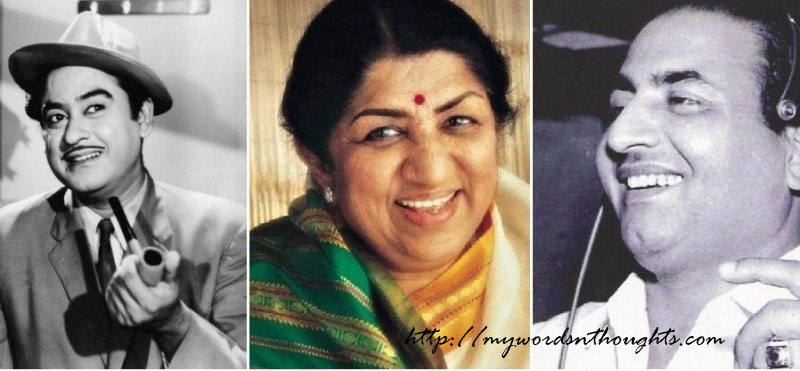
Interesting facts related to Bollywood Music – Old Era
1. The big three legends among male playback voices of Bollywood – Mohammed Rafi, Kishore Kumar and Mukesh lost their lives in their mid 50s, when they were going through a down phase in their respective careers, and waiting for a major comeback. Interestingly all of them died of heart attack, within a time period of 11 years (from 1976 to 1987). Mukesh died in 1976 at the age of 53, followed by Rafi in 1980 aged 55 and Kishore Kumar in 1987 aged 58. Just before their deaths, Mukesh got a major break through Kabhi Kabhi, Rafi through Karz and Kishore Kumar through Mr. India, which could have propelled their respective careers.
2. Most of us relate songs of Aradhana with Kishore Kumar, as the movie gave him the big break as a playback singer, when two of the solos originally meant for Rafi were recorded in his voice. But there is one Telugu super hit film with the same title released in 1976, exclusively reserved for Mohammed Rafi. It was a remake of Rajendra Kumar’s 1970 super hit film, Geet with wonderful songs composed by Kalyanji-Anandji. Interestingly out of the 7 tracks of the album, Rafi sang 5 of them. Even the original tunes of ‘Mere Mitwa‘ (sung by Rafi and Lata) and ‘Tere Naina Kyon Bhar Aaye‘ (with modifications) were retained, and Rafi sang its Telugu versions – ‘Naa Madi Ninnu Pilachindi’ and ‘Neekaela Intha Niraasa‘ respectively. Male version of Tere Naina Kyon Bhar Aaye was originally sung by Mahendra Kapoor.
3. Though R. D. Burman’s music and his combination songs with Kishore Kumar virtually brought down the career of Mohammed Rafi (never forgot the recording of two solo tracks in Kishore Kumar’s voice, originally reserved for Rafi), the legendary singer earned his single National award for best playback singer for a composition of Pancham da – Kya Hua Tera Wada. Interestingly Kishore Kumar has never won a National award.
4. Mohammed Rafi has worked as a chorus singer during his initial days in Hindi cinema in the 1940s. He has worked as a chorus singer in many movies of Naushad, who later turned his mentor and gave him the major break through Baiju Bawra in 1953.
5. The iconic and immensely popular romantic song – Kabhi Kabhi composed by Khayyam was a simplified version of Sahir Ludhianvi’s Urdu poem taken from his collection Talkhiyan. In fact Khayyam has originally composed this poem for a 1950 movie directed by Chetan Anand, and recorded the song in the voices of Geeta Dutt and Sudha Malhotra. But the song was never released.
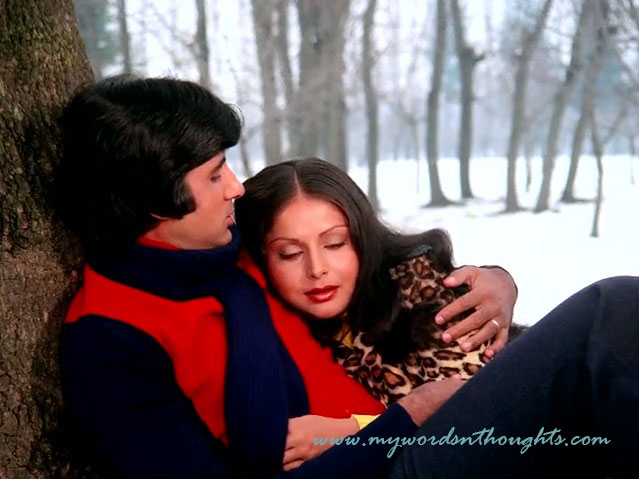
The romantic song, ‘Kabhi Kabhi’ catapulted Khayyam to instant fame as a composer
6. Though O. P. Nayyar remained a celebrated music composer of 1960s giving numerous hit songs to Rafi and Asha, he was never nominated at Filmfare nominations in the decade. He has been nominated thrice in the late 1950s, and won it once for ‘Naya Daur‘ only, throughout his career.
7. Kishore Kumar turned a full-fledged playback singer only after the success of ‘Aradhana’ in 1969. Till then he mostly preferred to try luck in acting and ended up with limited success. Till then, except for his films, he rarely did playback singing for other actors. Only exception was Dev Anand, and most of those songs were tuned by S. D. Burman.
8. S. D. Burman was the only music director of Bollywood who explored Kishore Kumar’s voice as a playback singer, and he experimented with the voices of both Kishore Kumar and Mohammed Rafi, when it comes to Dev Anand movies. Throughout 1950s and 1960s, Kishore Kumar predominantly sung for his own films, except for S. D. Burman and R. D. Burman.
9. Padosan is one of the rare films of 1960s in pre-Aradhana period, for which he sung for R. D. Burman. Yet he rendered voice for those songs only, for which he acted onscreen. A strange co-incidence, Kishore Kumar’s character played the role of a playback voice of Sunil Dutt in the movie, and in the following year he became a full-fledged singer and started playback singing for all lead actors of Bollywood. Quite interesting, R. D. Burman became instrumental in both these cases (as a composer of Padosan, and for recording three songs with Kishore in Aradhana).
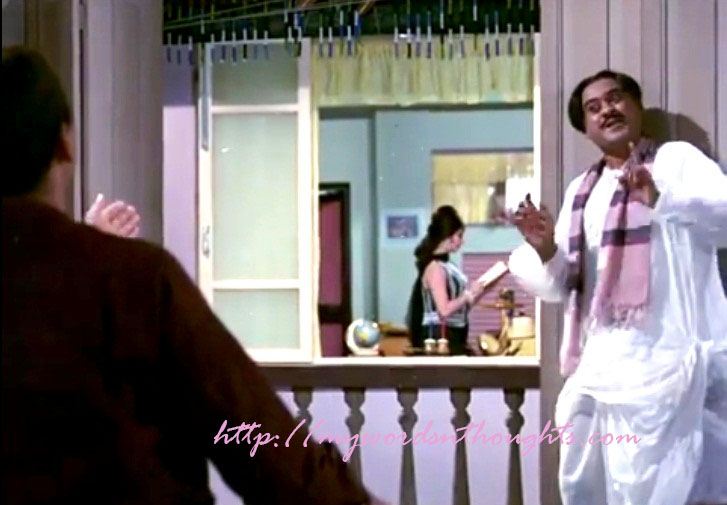
10. Pyar Hua Hai Jab Se of Abhilasha is one of the early hits of Kishore Kumar – R. D. Burman duo, and one among the first hit songs of Kishore Kumar when he turned the ghost voice of an actor other than Dev Anand (mostly in association with S. D. Burman).
11. Kishore Kumar considered Saighal Saab as his singing idol always. When HMV offered him to sing the cover version of all hit songs of Saighal in the 1980s, he politely refused it. He simply doesn’t want any fan to tell his voice or rendition excel his guru’s or his work, a true tribute.
12. Five hit songs of Karz (1980) later inspired movie makers to coin film title for their movies. Dard-e-Dil song was used to coin the flop movies – Dard-e-Dil and Aashiq Banaya Aapne. Om Shanti Om and Ek Haseena Thi got noticed while Paisa Ye Paisa and Main Solah Baras Ki flopped.
13. The hit song, ‘Kaaton Se Kheench Ke’ from Guide opens with Antara instead of Mukda, a rare happening in Bollywood music, especially in the classic era.
14. O. P. Nayyar never recorded a song in Lata Mangeshkar’s voice throughout his career. Yet he remained one of the most successful and celebrated music composers of Bollywood music in the late 1950s and 1960s throughout, which was the peak era of Lata Mangeshkar as a playback singer as well.
15. The movie Junglee (1961) included a popular track, Kashmir Ki Kali pictured on Shammi Kapoor and Saira Banu. Three years later when Bengali actress Sharmila Tagore was launched to Hindi cinema, this particular song was used to coin the title – Kashmir Ki Kali. Interestingly Shammi Kapoor played male lead this time too, and both the films with debutante actresses were commercial hits.
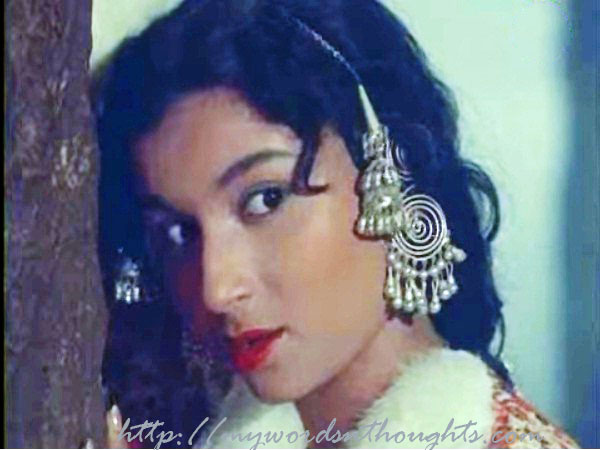
Sharmila Tagore in ‘Kashmir Ki Kali’
16. Shankar Jaikishen predominantly worked with Hasrat Jaipuri and Shailendra, celebrated Urdu poets and lyricists.
17. Bollywood composers R. D. Burman and Laxmikant Pyarelal extensively worked with lyricist Anand Bakshi in the 1970s and 1980s. Anand Bakshi penned lyrics for 99 Burman films and 302 Laxmi-Pyare films, and in most cases he exclusively penned lyrics for all its songs.
18. Bollywood composer Roshan predominantly worked with lyricist Sahir Ludhianvi, while legendary composer Naushad frequently worked with Shakeel Badayuni.
19. Most probably Ni Sultana Re from Pyar Ka Mausam is the first recorded duet of Lata Mangeshkar and Mohammed Rafi by R. D. Burman, and it became immensely popular too. Interestingly the song was tuned by Homi Mullan and Burman together. The musician also played Duggi for its recording. The film director Nasir Hussain repeated the film sequences from his hit film, Dil Dekhe Dekho, filmed on Asha Parekh and Shammi Kapoor (Yaar Chulbula Hai). Asha appeared in both these sequences, while Shammi’s younger brother appeared in Version no: 2. What a strange co-incidence!
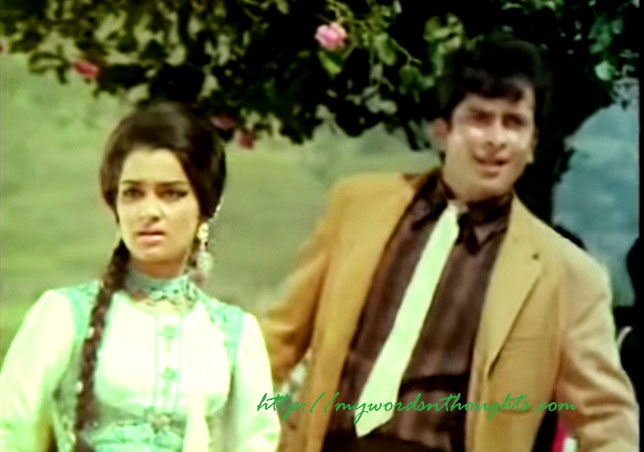
20. R. D. Burman extensively worked with Nasir Hussain’s film projects since mid-1960s (Teesri Manzil being the first one) and Aangan in 1973 became the only movie of Nasir Hussain (scripted and directed by himself), where he choose new lyricist and music director other than his favourites. After that Qayamat Se Qayamat was the first film for which Nasir Hussain hired a new composer, followed by Jo Jeeta Wohi Sikander, both starring his nephew Aamir Khan. Interestingly Majrooh Sultanpuri penned lyrics for all these films which include – includes Teesri Manzil, Baharon Ke Sapne, Pyar Ka Mausam, Caravan, Yaadon Ki Baaraat, Hum Kise Se Kum Nahi, Zamane Ko Dikhana Hai, Zabardast etc.
21. ‘Mein Sundar Hoon’ (1971) is the only film for which Anand Bakshi penned lyrics for the celebrated composers – Shankar Jaikishen. The popular lyricist predominantly worked with Laxmikant-Pyarelal and R. D. Burman, who dominated the musical scene since late 1960s, penning lyrics for 302 and 99 movies respectively. ‘Mujhe Tand Lag Rahi Hai‘ featuring Biswajeet and Leena Chandavarkar is the most song of the album.
22. It was Anand Bakshi who penned lyrics for two of the popular friendship songs of Amitabh Bachchan – Diye Jalte Hain from Namak Haram and Yeh Dosti Hum Nahi Thodenge from Sholay, and R. D. Burman composed the tunes of both these songs. Both films were released in the first half of 1970s, when Amitabh Bachchan had just begun to cement his position as next super star of Bollywood.
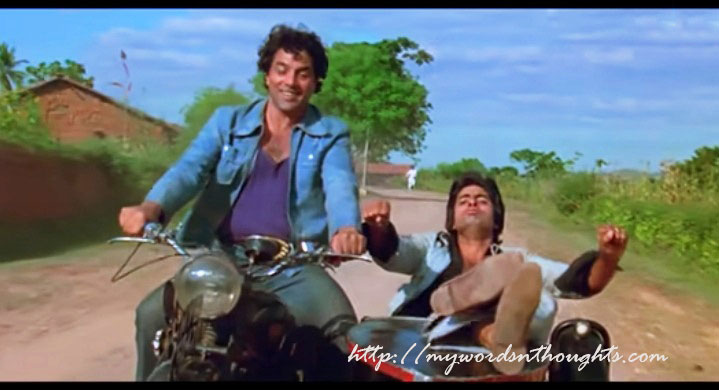
The iconic friendship song from ‘Sholay’, which marked the successful beginning of association of R. D. Burman with Amitabh Bachchan movies
23. Feroz Khan’s romantic song, Pyar Ka Fasana Bana Le Dil Diwana from 1965 movie, Teesra Kaun was later used to coin the title of his son’s romantic film, Kuch Tum Kaho Kuch Hum Kahein‘ in 2002. The movie – Teesra Kaun was one of the early works of R. D. Burman as a composer.
24. There is an interesting fact related to Chingari song from Amar Prem. It was a million-dollar mistake made by guitarist Bhanu Gupta during the recording section. When he played a wrong tune by mistake, other musicians present there started laughing. The musician also felt embarrassed for playing a wrong tune on such an occasion, which was technically wrong. But our Master composer R. D. Burman best known for incorporating weird tunes and noises in his recordings, felt that the tune is nice and incorporated in the beginning of the song. It became a masterpiece composition, and that lovely piece of music was well-appreciated!
25. Most of the music directors of 1950s and 1960s strongly believed that Kishore Kumar couldn’t do anything beyond yodelling, and no one took his singing seriously except S. D. Burman. He was best known for his comic screen roles then. The legendary composer Naushad, best known for classical & semi-classical songs recorded only a single song in his entire career in Kumar’s voice. ‘Hello Hello Kya Haal Hai’ from 1975 Rajendra Kumar – Hema Malini starrer Sunahare Sansar (a duet with Asha Bhosle) is that particular song.
26. 1932 Hindi movie, Indra Sabha holds the record of maximum number of songs. The total count of songs is 70, an unbroken record even after decades. Among present-generation movies, Hum Aapke Hain Kaun (1994) and Rockstar (2011) both with 14 hit songs is the highest.
27. The popular romantic song of 1960s – Yeh Mera Prem Patra from Sangam was penned by Hasrat Jaipuri. In fact it was his first love letter for his lady love, a Hindu girl named Radha, in which he poured those words. After more than two decades, Raj Kapoor included this poem in his movie Sangam, and interestingly Vyjayantimala’s character name was also Radha, for whom Jubilee Kumar pens that beautiful poem.
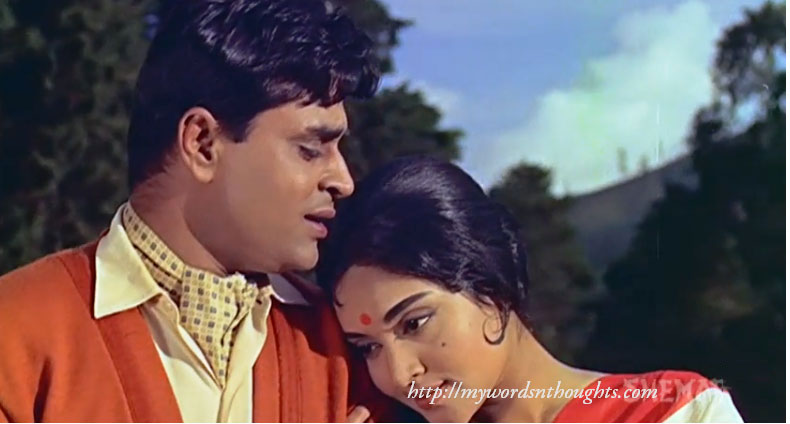
28. Poornima (Sushma Shreshta) holds the rare record at Filmfare awards for being nominated as a child artist twice in singing category, and is the youngest nominee too (shares the record with Master Vignesh from male category) at the age of 11. Though she was fully active in the 1990s she has never been nominated as an adult singer and has never won a Filmfare award.


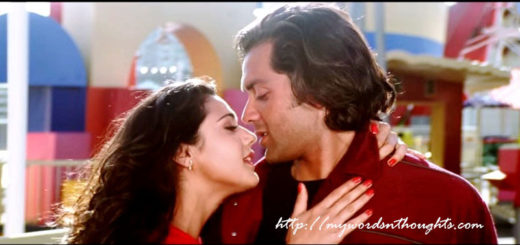
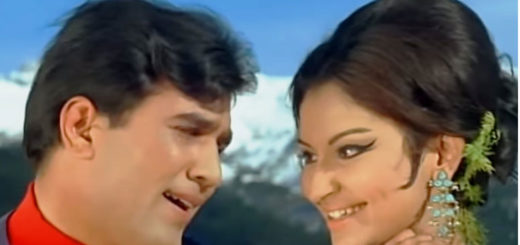


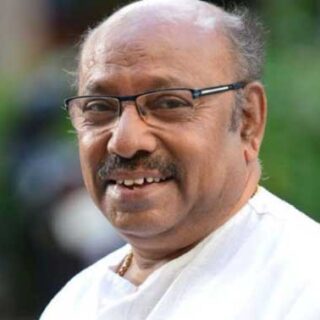
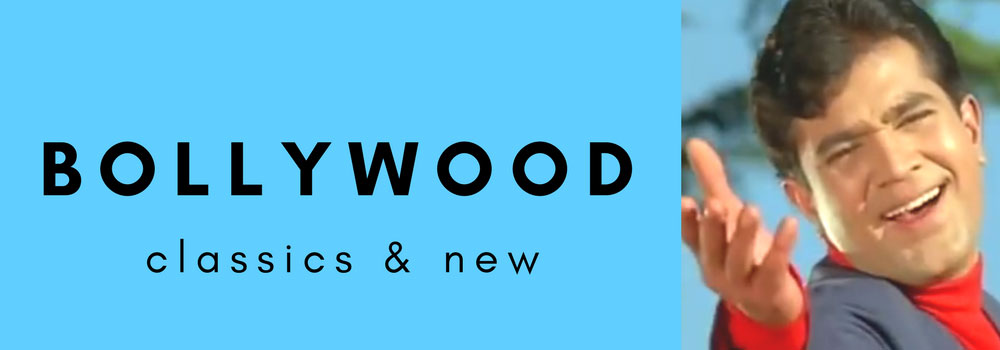
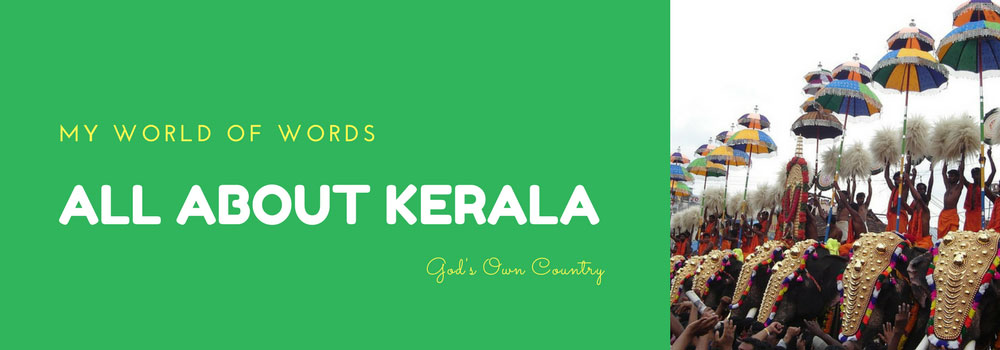





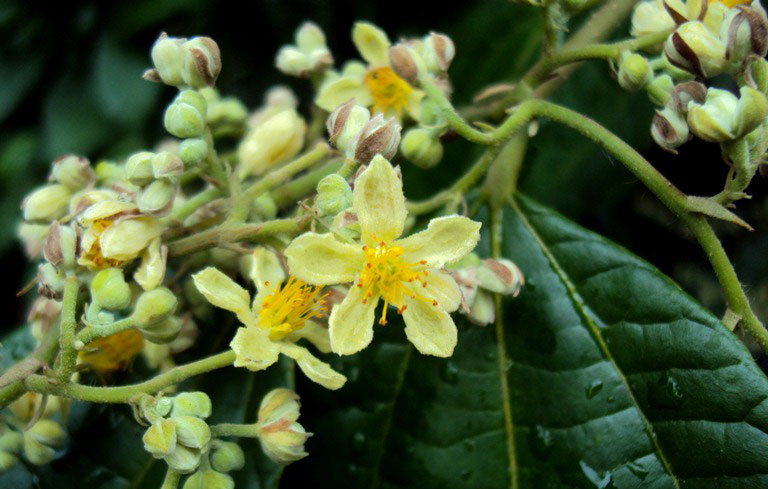
Recent Comments